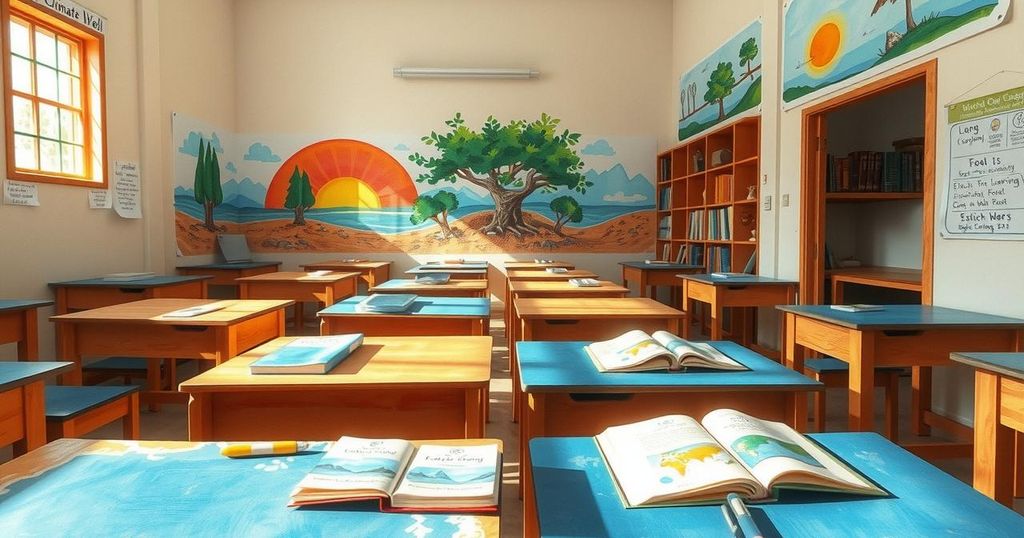Confronting Climate Change: Zimbabwe’s Youth Empowered Through Education

Zimbabwe’s children are experiencing firsthand the realities of climate change, including erratic weather patterns and severe droughts, impacting their education and livelihoods. Through initiatives by UNICEF and KOICA, schools are incorporating climate education to prepare students to understand and address these issues. Young learners like Mollene Masiya and Tapfuma Bhasikoro express their eagerness to learn about climate change and contribute to solutions.
The impact of climate change is acutely felt in Zimbabwe, where daily life is increasingly affected by extreme weather conditions. Communities are experiencing water shortages, destructive storms, and failing crops, indicating a significant shift in climate patterns. Rural areas, in particular, bear the brunt of these changes, compelling both students and educators to devise solutions to adapt to and mitigate these challenges.
Fungai Makureke, a long-serving teacher at Sikato Primary School, reflects on the drastic changes in weather patterns. She notes, “Now, we don’t know what to expect. The rains come late, or sometimes not at all.” This unpredictability poses severe consequences for local agriculture, as demonstrated by the devastating drought caused by the 2024 El Niño phenomenon, leading to widespread crop failures and water shortages.
In response to these pressing issues, UNICEF, alongside the Korean International Cooperation Agency (KOICA) and the government, is implementing climate education initiatives. Educators like Priscilla are being trained to instill knowledge about climate resilience in students, emphasizing the importance of understanding environmental changes from an early age. As Priscilla states, “I want to help children understand what’s happening around them—and what they can do about it.”
Mollene Masiya, an eleven-year-old student from Chitembere Village, expresses the critical link between rainfall and food security. She explains, “When the rains come, there is food,” but now they must journey far for water, affecting her ability to attend school. Her newfound curiosity about climate change demonstrates the eagerness of the younger generation to comprehend these changes.
Similarly, fourteen-year-old Tapfuma Bhasikoro from Magwa Village recounts the destruction wrought by strong storms. These weather extremes have not only damaged infrastructure but have also led to overcrowded classrooms. Tapfuma conveys a sense of hope: “We didn’t know why these things were happening. But now, if we learn more about climate change, maybe we can change how we live, and protect our environment.” In schools across Zimbabwe, the youth are being empowered to confront climate challenges and advocate for sustainable practices, signaling a vital shift towards proactive environmental stewardship.
In conclusion, Zimbabwe’s youth face the immediate and harsh realities of climate change, which have transformed daily life in their communities. Through climate education programs, students are learning about these challenges and acquiring the tools to address them effectively. This new generation, equipped with knowledge and resilience, is poised not only to adapt but also to be the driving force in advocating for environmental solutions that can combat the impacts of climate change.
Original Source: www.unicef.org






